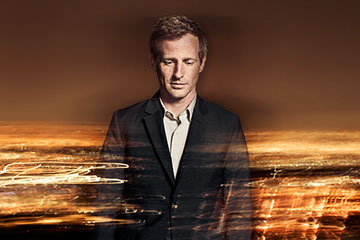
(3 of 4)
"He designed the whole thing to have a minimal crew to have it feel intimate and alone," says Phoenix. "He talks very quietly. It's almost whispering, some of the notes or thoughts he has. Each word is chosen carefully. It makes it feel so personal and important." Phoenix adds that Jonze combines touchy-feely with demanding in a way he'd never seen before: "He will home in on the smallest details and work something over and over. He's very certain of what he wants."
Before she worked with him, Amy Adams, who plays Phoenix's longtime friend in the film, saw Jonze as the kid at the cool table. "I always thought he was that brand of cool that I could never attain," she says. "I was afraid I was going to have to say the right thing. But he's much more interested in truth. Spike and I sat down and talked about my personal experience and how I deal with relationships. The experience of working with Spike made me look at myself and how I operated in my own relationship. That's what people are going to experience watching Her--really being open and available. Not keeping your true self a secret from your partner."
But I'm not here for a true self. I'm here for a story. So Jonze does do this: He takes me through the huge Hollywood Hills house where he spent a year shooting and editing Her--photo booth, quotes on papers taped to walls, large butcher knives, neighbors kicking them out since Larry Ellison's producer daughter really shouldn't have put her office in a neighborhood full of multimillion-dollar houses--and says, "I'm going to make this really hard on you. There are six questions I've answered so many times that you can't ask any of those. If you ask any questions that you already know the answer to, I'm not going to answer any of those either." So we talk about the philosopher Alan Watts, whose notion that a false belief in permanence--say, trying to be the same person you were the day before--causes pain is a key tenet of the film. It is, of course, an incredibly lonely notion, that we don't even have a yesterday self to relate to.
When Jonze says, perhaps playfully, that George W. Bush is a person whose opinion of Her he'd be curious about, I discover that he's unaware of Bush's paintings. So I get Siri to show him some of Bush's work. "His dog locked out of the White House? How symbolic. How heavy. That's lonely. I wonder if he's lonely," Jonze says, examining the dog painting. "He's got an interesting mind. That's actually kind of cool. That's kind of interesting." Yes, but maybe not as interesting as Spike Jonze liking Bush's artwork.
